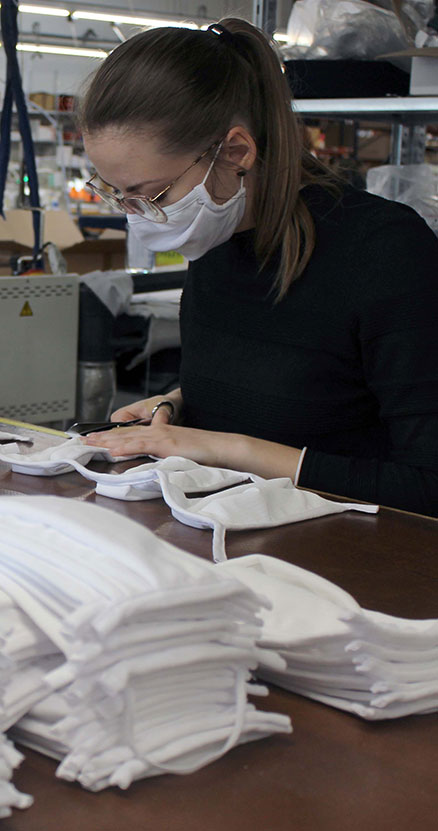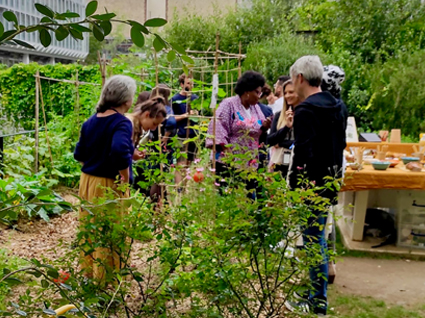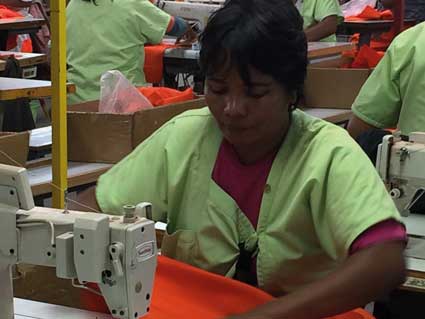
CEPOVETT, Global Compact ambassador for Rhône-Alpes
3 July 2020
The SENS range, a unique collection co-designed with EPI Center
3 July 2020
CEPOVETT studios join the fight against coronavirus
While France was in lockdown for more than two months, there was a shortage of masks for healthcare staff and employees exposed to coronavirus in their workplace. So the CEPOVETT group adapted its industrial textile facility to focus on manufacturing protective masks. At its head office in Gleizé, the company set up a dedicated production line of 20 staff, who pooled their expertise in order to design officially approved alternative masks.
At the same time, the company put its industrial studios in Madagascar (Epsilon/CEPOVETT) and Tunisia to work, providing protective equipment for the local authorities and its own customers. Several million masks were made this way during the lockdown period. In Madagascar, this initiative was intended in particular to protect factory staff and local populations, as well as alerting them to the dangers of the virus and the need to implement barrier measures in one of the poorest countries with a high level of exposure to the disease. Indeed, the spread of the Covid-19 virus to Africa is a threat to the island of Madagascar, where hygiene conditions are far from meeting western sanitary standards.

Olivier CUA
Managing Director, Epsilon/CEPOVETT



